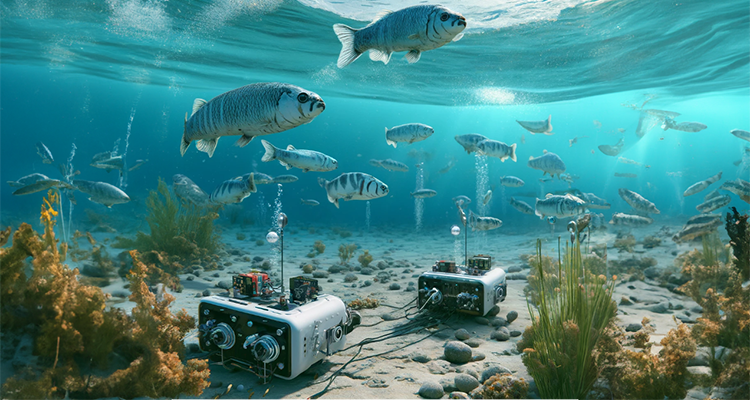
Thesis subject
Developing Robot Shepherding Strategies for Aquarium Fish (MSc)
Short description
Understanding how fish react to robotic stimuli can significantly advance our knowledge in fields such as environmental management and aquaculture. This thesis focuses on using machine learning to analyze video data of fish behavior in the presence of robots. By capturing and studying these interactions, the goal is to develop a computational model that can guide robots in shepherding fish towards designated goals. This research involves creating a machine learning framework to interpret complex behavioral patterns and applying these findings to develop adaptive and effective robotic strategies for influencing fish movement.
Objectives
- Identify key behavioral patterns in fish when interacting with robots.
- Utilize robotic effect to shepherd fish towards a known goal
Tasks
The work in this master thesis entails:
- Literature Review: Conduct an extensive review of existing research on fish behavior analysis, machine learning applications in behavioral science, and robotic influence in aquatic environments. Identify knowledge gaps and key challenges.
- Model Development: Develop and train a machine learning model to analyze the video data, focusing on identifying and interpreting key behavioral patterns in fish.
- Algorithm Design: Design algorithms based on the machine learning model's output to guide robotic behavior for effective fish shepherding.
- Implementation and Testing: Implement the robotic shepherding algorithms in a simulated environment. Conduct experiments to test the effectiveness of the robotic strategies in guiding fish towards specific goals.
- Analysis and Reporting: Analyze the results of the simulations, and identify the strengths and weaknesses of the developed strategies. Document the findings and present a thesis report.
Requirements
- Required skills/knowledge: Programming skills and willingness to learn new algorithms and simulation tools.
Contact person(s)
Yara Khaluf (yara.khaluf@wur.nl)